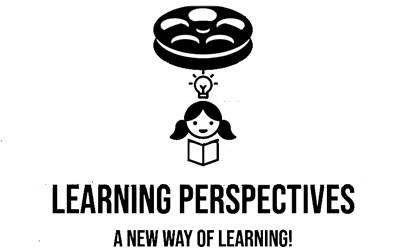Case breakdown: Movie PK
The scene that you saw shows how people can have different perspectives of the same situation. PK (played by Aamir Khan) looks at the world differently and that is what is unique about him. He does not understand why would someone run away from a condom while claiming money that has maybe fallen out of the pocket of someone else. Many people do seem to follow the crowd and get lost in details while a useful approach would be to see things from a different perspective.
In this blog, Learning Perspectives explores factors that influence an individual’s perceptions.
What is Perception?
Perception is the process by which individuals organize and interpret situations or impressions to give meaning to the environment. However, what one perceives can be different from objective reality. Perceptions are important in organizations as well. People’s perceptions change behaviors and this can be almost instantaneous.
When we view situations and circumstances from a higher perspective, details suddenly become irrelevant.
Factors Influencing Perceptions:
Interpretations are heavily influenced by the personal characteristics of the individual perceiving. Many times perceptions become distorted. There are three parties when perceiving:
- First is the perceiver (someone who is Perceiving the circumstances),
- Second is the target or an object and
- All this occurs in and around a situation.
Personal characteristics that affect perceptions are:
- Attitudes
- Personality
- Motives
- Interests
- Past Experiences or learning
A target or an object is not looked at in isolation. Backgrounds, also influence perceptions and our tendency to group similar things together. For instance, women are bad drivers or Muslims are terrorists, white people are racists, etc.
The context in which we see things is also equally important. For example, a person would appear different to you in a night club and the same person is perceived differently when you see him/her in a professional setting. Now, this perception can be good, bad, or ugly, depending on how you see things. Making judgments about others is based on many aspects:
Attribution theory:
Our perception and judgment of a person’s action are influenced by the assumption we make about a person’s internal state.
Selective Perception:
Any characteristic that makes a person, object, or event stand out will increase the probability of it being perceived. This is because we can’t assimilate everything we see. Only certain stimuli can be seen and taken in. This tendency explains why we see some cars we own or why the same people are scolded by their bosses. This means there are times we can form inaccurate judgments about others because we see what we want to see.
Halo effect:
When we draw a general impression of an individual basis one specific characteristic, this is termed the halo effect. For example: If, as an instructor, you happen to be extremely knowledgeable, articulate and to the point but if you are low on energy. You can be perceived as someone who’s not interested in teaching, or someone having no zeal.
Contrast Effect:
In an interview situation, where an interviewer sees a pool of job candidates. The interviewer’s perception can be distorted about a candidate, basis on what he is scheduled in the interview schedule. This is called the contrast effect.
Projection:
It is easy to judge people if we assume they are similar to us. The tendency to attribute one’s own characteristics to other people is called projection and can distort perceptions made about others. People who engage in projection tend to perceive others according to what they themselves are like rather than according to what the person being observed is really like.
Stereotyping:
When we perceive others, on the basis of a perception of the group, we are indulging in stereotyping. For example, all Punjabi are loud, men can’t take care of kids or Chinese are hard-working. We tend to attribute traits to individuals which can be far from reality.
Distorted perceptions are the worst kind, they can break relationships and make life difficult. We all are evolving and growing hence, staying neutral and not judging people would help one live a balanced life.
References: Organizational Behavior by Stephen P. Robbins








